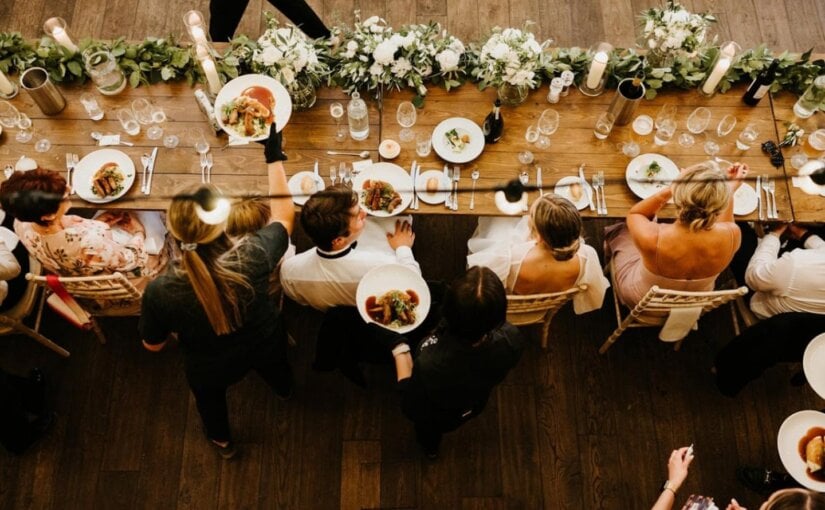One of the most exciting parts of a wedding for many is undoubtedly the wedding breakfast. It’s the time when you and your brand new spouse sit down together to have your first meal as a married couple while surrounded by your excited family and friends.
But what is a wedding breakfast? Why is it even called a breakfast when you don’t start eating until at least 2pm? And what sort of food do you have at a wedding breakfast anyway?
If you’re planning your wedding, you probably have a lot of questions about this part of your big day. It’s also one of the most expensive parts of your wedding, with the food alone costing between £30 and £40 per head. For that reason, you’ll definitely want to get everything right so you have a wedding breakfast to remember.
In this article, we’ll answer the most common questions surrounding wedding breakfasts, so you can make sure you have all the information you need to throw the wedding of your dreams and dine in style.
What exactly is a wedding breakfast?
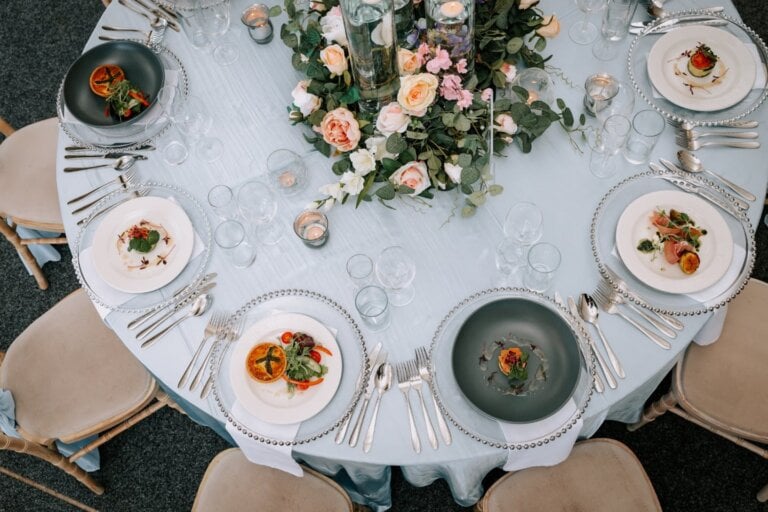
A wedding breakfast is the term used in the UK for the first meal you sit down to after your wedding ceremony. Traditionally, the happy couple sits at a top table with members of the wedding party, while the rest of their guests accompany them sat at tables nearby. Often, with a wedding ceremony that starts around lunchtime, you may find that you won’t sit down to the breakfast until two or three o’clock.
Many couples like to arrange a three- or four-course meal as their wedding breakfast, which is served by a team of waiting staff. However, it’s also becoming more common for couples to choose an alternative, such as going straight into a buffet or using a food truck or two.
With a three-course meal, the menu is usually shared with invited guests beforehand and they’re asked to choose what they’d like to eat from a menu of two or three options. This keeps things simple for the catering team, who may have to make 80 (or more, depending on the size of your wedding!) portions of each dish. For a four-course dinner, that’s 320 plates of food!
Why is it called a wedding breakfast?
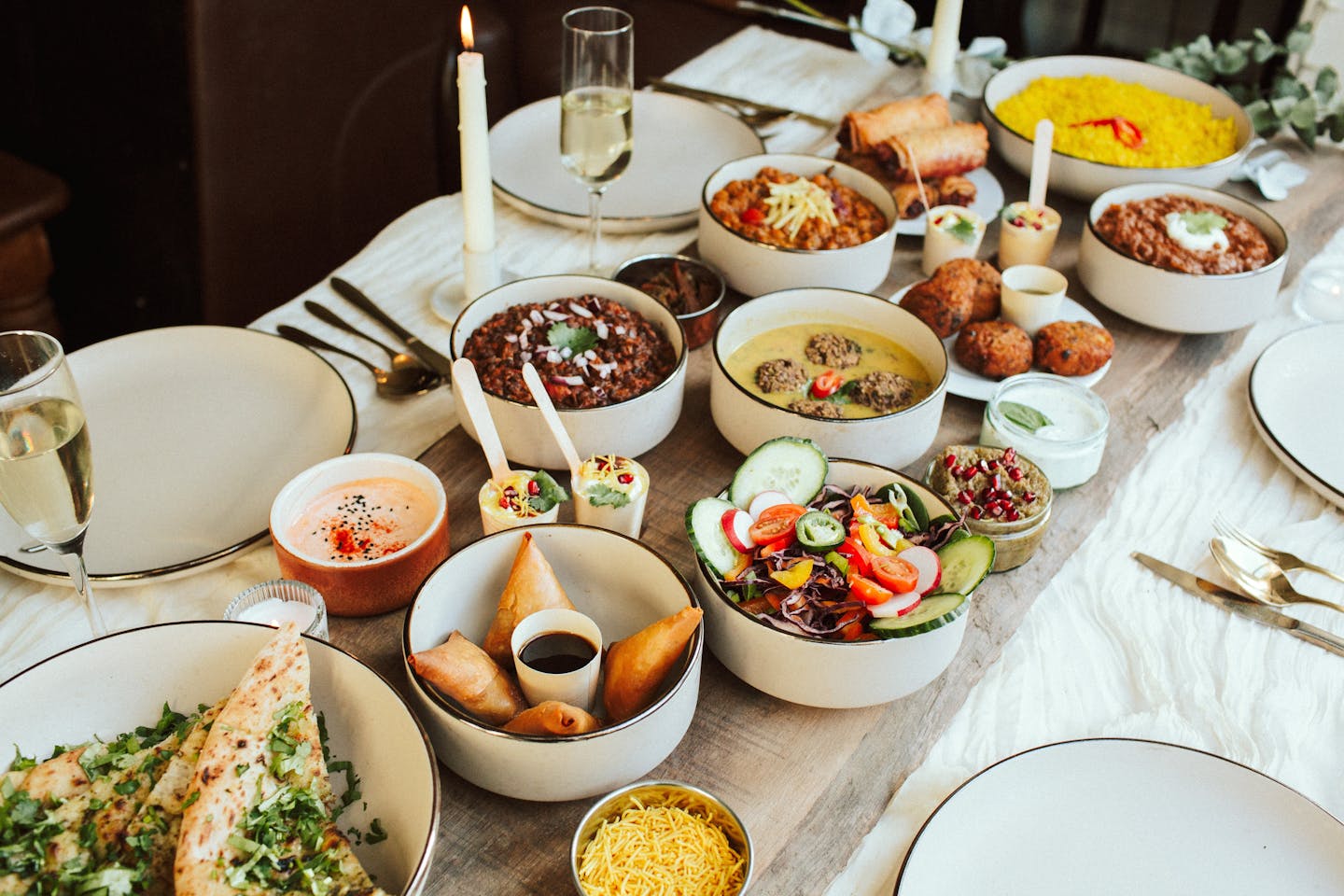
The term ‘wedding breakfast’ can be a little misleading, as it’s usually not until the early- or mid-afternoon that you sit down to finally eat. However, the term wedding breakfast actually comes from the historical tradition where couples and guests wouldn’t eat on the day of the wedding until after the ceremony. This is known as a fast, and the couple and their guests would then break that fast after Holy Communion.
While many modern couples don’t choose to have a religious service, the tradition of having a wedding breakfast has remained. It’s often confused with the breakfast you might have while getting ready for the ceremony – something like smoked salmon and eggs with a cheeky Buck’s Fizz. But, this isn’t the case. And if you do have breakfast on the morning of your wedding (which we recommend you do, because it’s a super long day and you probably won’t eat until much later than you normally would anyway), then you of course still get to call it your wedding breakfast.
What time is a wedding breakfast?
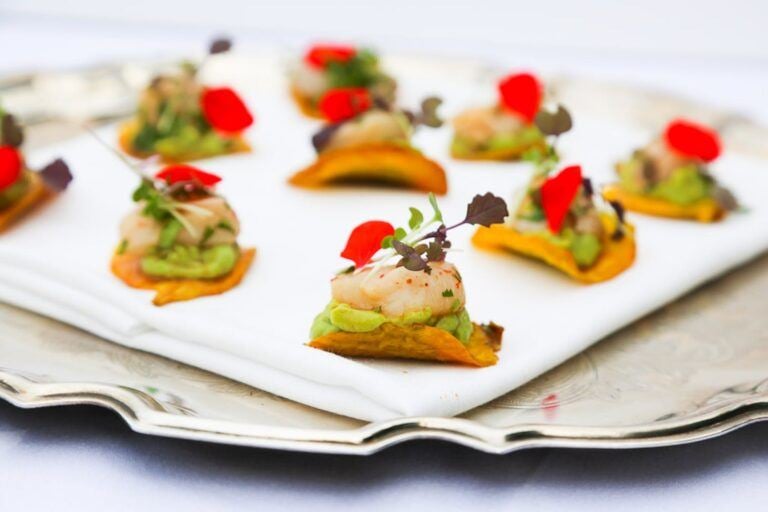
The time you get to eat your wedding breakfast depends on the time of your wedding. At a traditional wedding, it’s common for the couple and their guests to sit down to eat the wedding breakfast around two to three hours after the ceremony begins – but this can be longer if you have adventurous plans with your photographer or you have a longer religious ceremony.
This applies whether your ceremony takes place around lunchtime or you have a twilight wedding. Here’s an approximation as to when you may start the wedding breakfast depending on when you begin your wedding ceremony:
- Lunchtime weddings: If your ceremony starts between 11am and midday, the breakfast will usually be between 1pm and 3pm.
- Afternoon weddings: If your ceremony starts between 2pm and 3pm, your breakfast might start between 4pm and 6pm
- Twilight weddings: If you have an evening ceremony, at around 5pm or 6pm, you might have your wedding breakfast at around 7pm to 9pm.
Remember, these times aren’t set in stone and depend on your plans, budget, menu and style of wedding breakfast.
Where does a wedding breakfast take place?
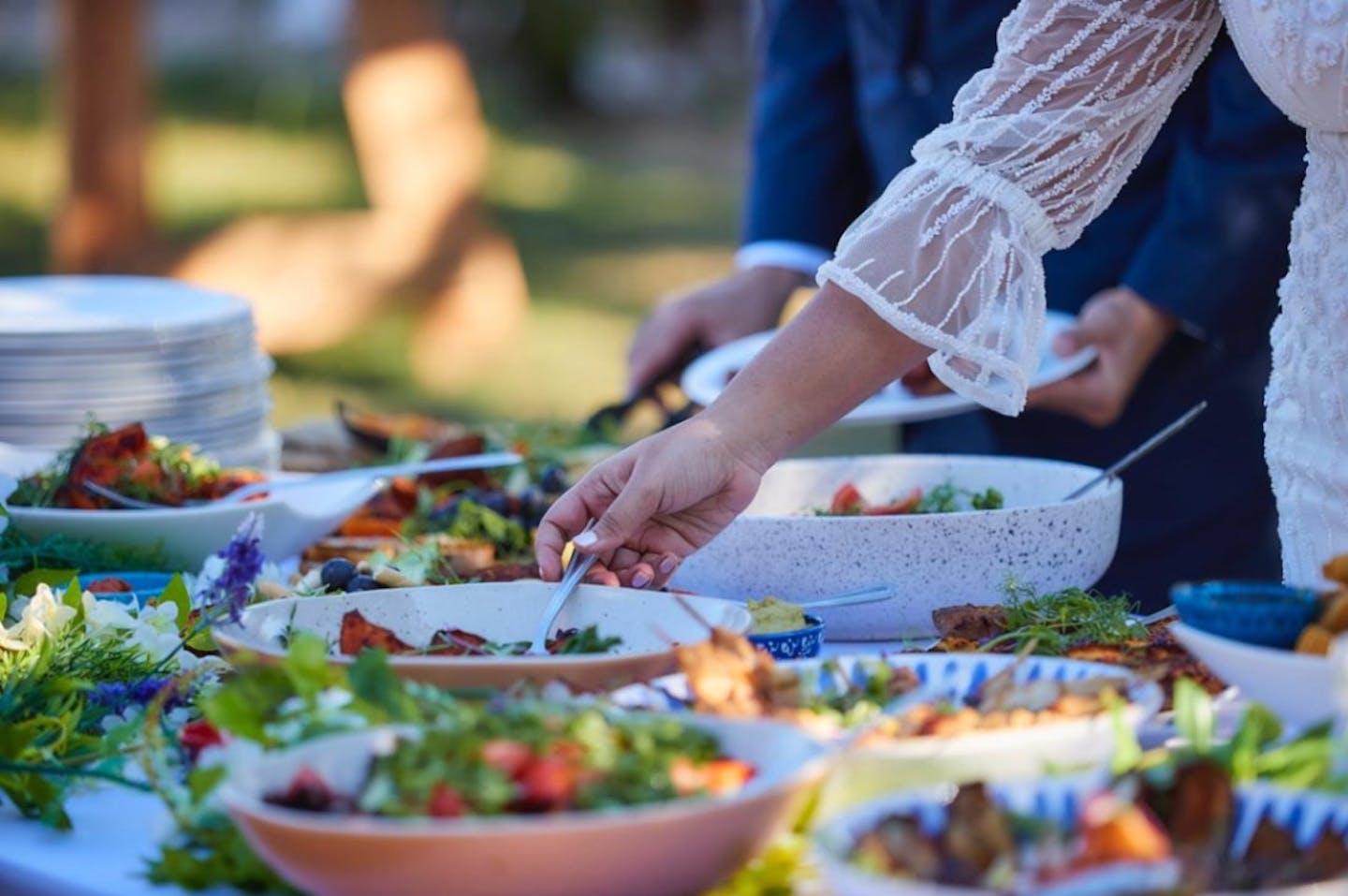
The wedding breakfast usually takes place at your chosen reception venue, which is laid out to suit the style of dining you’ve gone for. For example, a traditional waiter-service breakfast will have tables arranged in a large dining room, often with a top table. So, in theory, you can have your breakfast almost anywhere, so long as it meets your requirements.
Some of the most common venues to host a wedding breakfast include:
- A hotel
- A country house or estate
- A banquet hall or ballroom
- A restaurant or private dining room
- Outdoor spaces such as a garden or marquee
- Unique spaces such as a castle or museum
Check out our huge range of wedding venues to find the perfect place to host your special day.
What happens at a wedding breakfast?
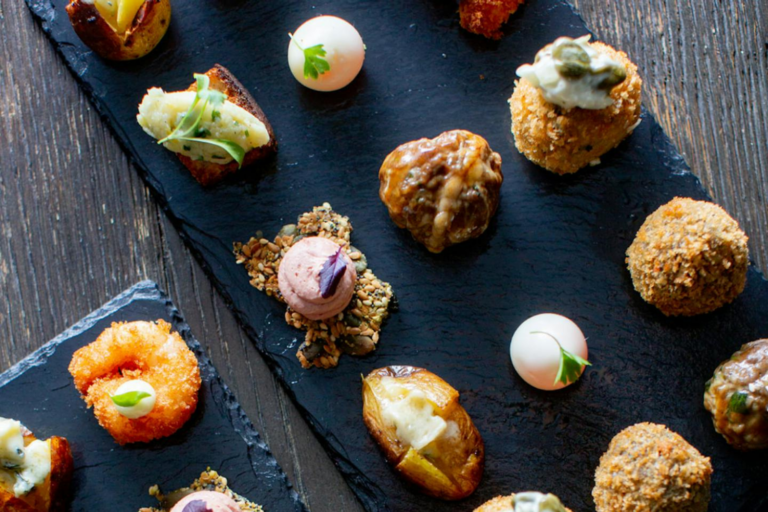
Your wedding breakfast can be anything you want it to be, so long as it fits within your budget and the vision for your big day. That being said, there is a traditional structure to a wedding breakfast that many couples like to follow, so it’s up to you if you want to stick to this or pick and choose the parts that stand out.
Here’s the structure many couples choose to follow for their wedding breakfast:
- Guests are encouraged to take their seats, which is typically pre-determined by the couple, with the seating plan being displayed at the venue.
- The couple enters the dining hall, often accompanied by a wedding entrance song (or something more low-key, if they don’t fancy that much attention).
- The meal is served and accompanied by drinks.
- After dessert, bubbles are served, which indicates that the speeches will soon follow.
- The wedding speeches take place, typically kicked off by the father of the bride, followed by the groom and finally the best man. Sometimes, the bride, the maid of honour, the mother of the bride or another relative may also offer a toast. During the speeches, the couple may offer gifts to parents and other members of the wedding party.
- The cake is cut as a symbolic gesture that represents the couple sharing their first task together. However, many couples choose to cut the cake during the evening reception. If the couple does cut the cake during the breakfast, this can then be served alongside tea and coffee or in place of another type of dessert.
- The breakfast is wrapped up with guests invited to leave the dining hall so the space can be transitioned to the evening reception and buffet.
How long does a wedding breakfast last?
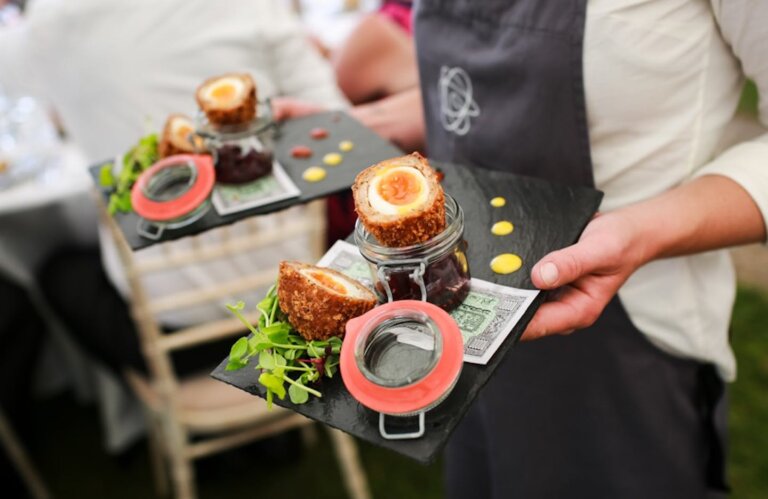
The length of time a wedding breakfast takes depends on several factors, such as the number of guests and the style of dining you’ve chosen, But, if you’ve chosen to go with a traditional style of wedding breakfast, it will usually last between two and three hours, which can be broken down like this:
- The meal: A three-course meal will take between 90 minutes and two hours. However, this might be a little longer if you have an especially large guest list.
- Speeches: A wedding speech should be no longer than five minutes, though there can be some leeway with this, especially if you’re giving out gifts to the wedding party. You also don’t want everyone in your family to give a speech, so ideally, the speeches will last between 20 and 30 minutes all together.
- Cake cutting: This only takes a few minutes – just remember to pose for the photos!
These are, of course, approximations, and small delays are to be expected when organising a party as big and grandiose as a wedding. So, don’t be surprised if things take a little longer than you initially anticipated. It’s your wedding, after all, so try not to let any little setbacks worry you too much.
What’s the difference between a wedding breakfast and a reception?
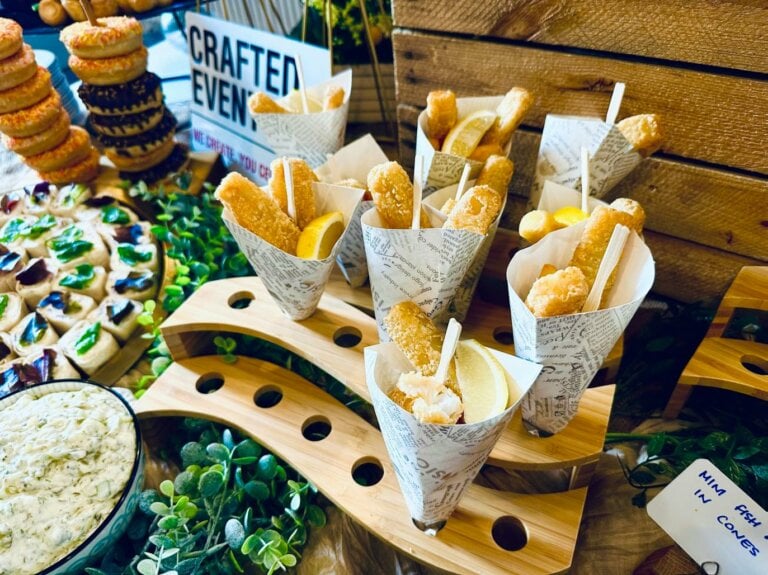
The wedding breakfast and reception are two distinct parts of a wedding celebration, with the breakfast taking place before the reception. However, there is still a fair bit of overlap between the two.
The wedding breakfast is the sit-down meal that takes place immediately after the ceremony (and photographs). It includes many famous wedding formalities, such as the speeches and cutting of the cake, and is usually reserved for the VIP wedding guests. The food is often formal and served by a dedicated team of wait staff who will make sure you’re well looked after. Some great wedding breakfast caterers include Philip Small, Amuse Bouche Catering and High Dining.
The wedding reception is the larger, far less formal celebration that takes place after the breakfast. There’s often music, dancing, buffet food and a wider guest list, which could include neighbours, colleagues, aquaintences and plus ones. Some brilliant reception caterers include SAM’s Caribbean Kitchen, Norma Farrelly Catering and Natterjack Catering.
Both the breakfast and the reception come together to create the overall feel, mood and style of your wedding day and should aim to complement each other.
Who is invited to the wedding breakfast?
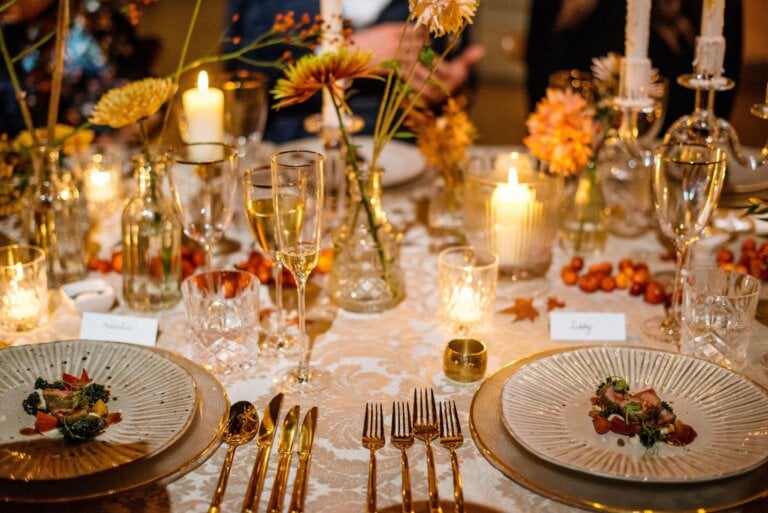
The guests invited to the wedding ceremony are also typically invited to the wedding breakfast. This includes:
- The wedding party
- Immediate family
- Close friends
- Close relatives
- VIP guests
Anyone else you’d like to involve in your celebrations, such as colleagues and plus ones of friends, could be invited to the evening reception instead. This all depends on factors such as your budget and the size of your venue – as well as your own wants, of course. It’s your wedding, after all!
For more information on how to create your wedding guest list, including who to invite and who not to, check out our dedicated article.
Who pays for the wedding breakfast?
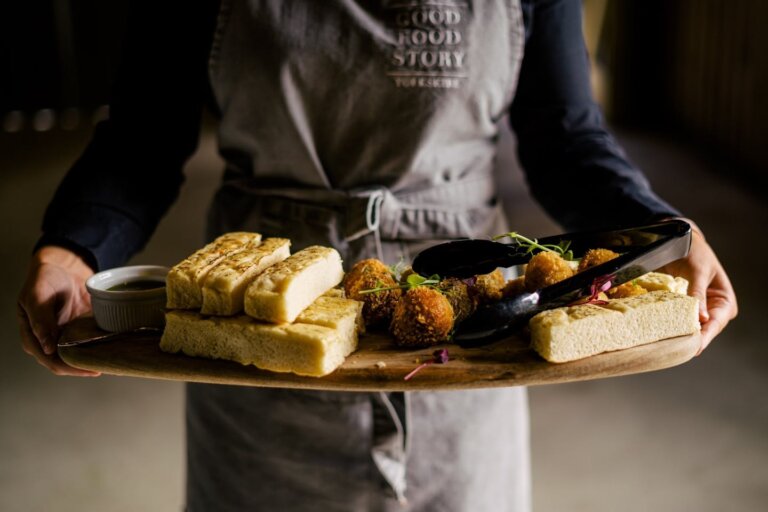
When it comes to who traditionally pays for what at a wedding, it can be difficult to work out who should pay for the wedding breakfast. But, because all the food falls under the wider wedding umbrella of the reception, that means traditionally it would be the bride’s family who would pay for this.
However, we’re in the 21st century, and not all couples choose to do things the traditional way anymore. So, there’s no right or wrong answer to this question. It all depends on your budget and the budget of your nearest and dearest.
Today, modern couples may choose to pay for the wedding breakfast themselves and ask family to pay for specific smaller aspects of the wedding, rather than rely on them to pick up some of the meatier (pun intended) wedding costs.
Who sits at the top table at a wedding breakfast?
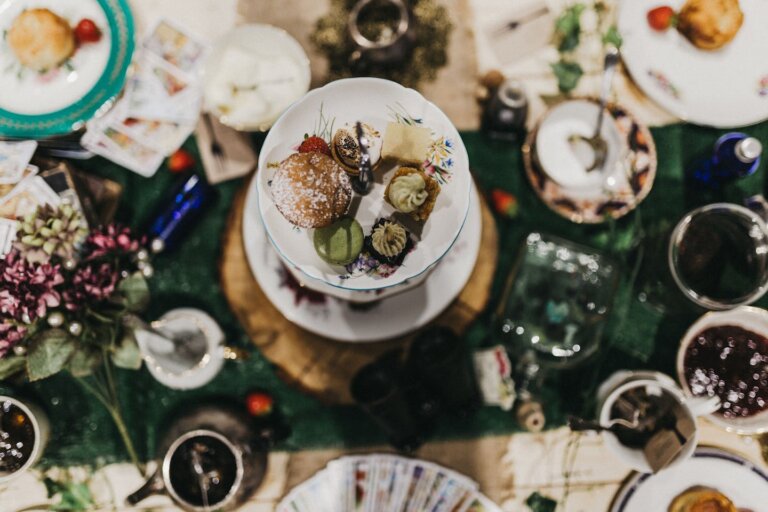
The top table at a wedding breakfast is reserved for the happy couple and their closest family and friends – typically, those who are part of the wedding party. It might look a little something like this (with the bride and groom in the middle).
- Parent of the bride
- Parent of the bride
- Best man
- Groom
- Bride
- Maid of honour
- Bride’s parent
- Bride’s parent
While this is traditional, you can be as creative as you like with it. Alternatives might include a couple’s only table, a round top table or completely mixed tables – it’s up to you! Discover more inspiration for top table arrangements in our dedicated article.
What food is served at a wedding breakfast?
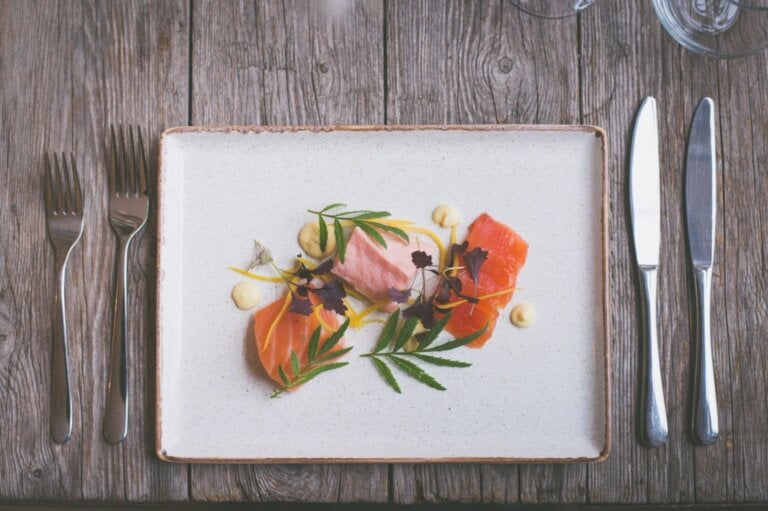
In theory, any type of cuisine is suitable for a wedding breakfast. However, many couples choose a refined menu which is three or four courses and served by a team of wait staff. But, if that’s not your vibe, and you’d prefer a line of street food trucks instead, then nothing should stop you.
It’s worth checking with your chosen venue about what food is and isn’t allowed, and if they require you to choose a specific caterer from a list of partnered vendors. So, if you have your heart set on your favourite wedding caterer, make sure they’re allowed before signing on the dotted line.
If you’re looking to go down the more traditional route for your wedding breakfast and offer your guests a selection of elegant dishes to choose from, there are several popular choices you might want to consider.
Canapés
- Vol-au-vents
- Spring rolls
- Belinis
Starters
- Soup
- Salad
- Pâté or terrine
Main courses
- Roast meat and seasonal vegetables
- A fish dish
- A vegetarian or vegan option
- Pasta
- A children’s option
Desserts
- Cheesecake
- Sorbet or ice cream
- Chocolate mousse
- Wedding cake
For more suggestions about what food to offer your guests at your wedding breakfast, read our article featuring the X best wedding breakfast ideas.
What drinks are served at a wedding breakfast?
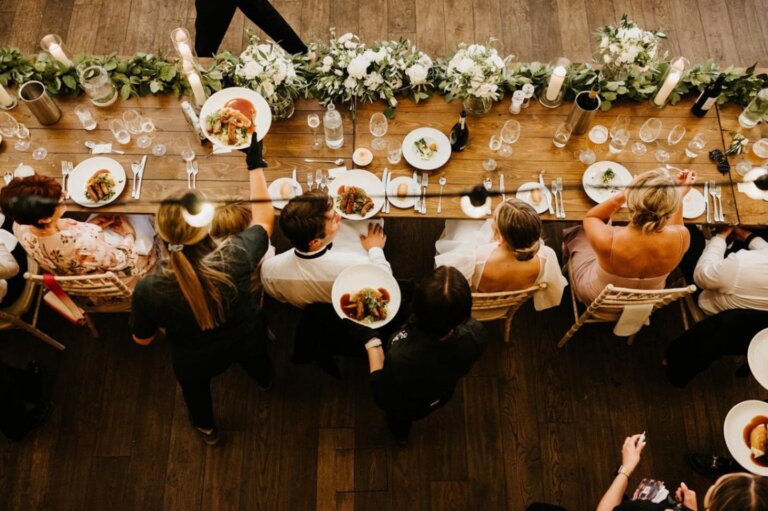
What drinks you offer your guests at your wedding breakfast is also totally down to you and your preferences – as well as your budget.
It’s very common for couples to provide their guests with a limited range of alcoholic drinks to enjoy with the breakfast, such as a bottle of red and white wine for each table (or even rosé – why not?), as well as water, juice and soft drinks. You’ll also likely want to provide everyone with a glass of Prosecco or Champagne so they can raise their glass as the toasts are given.
Depending on your chosen venue, there may also be a bar available so your guests can go and get their own drinks, whether that’s a pint of bitter, a vodka and coke or a fruity mocktail. It’s entirely your choice if you offer guests an open bar at your wedding breakfast and reception, but be warned, this can get rather pricey!
If you don’t have a bar at your chosen venue or you’d like to offer something a bit different, some brilliant mobile bars you can hire for your wedding include Daisy Duke Bar and Catering, Rochelle Strooh and Vintage Tipple Trailer.
Plan your dream wedding with Bridebook
At Bridebook, more than two million couples have used our app and our wide range of tools, tips and ideas to plan their perfect wedding and save money.
To make sure you have a wonderful wedding and serve your guests delicious food at the breakfast, browse our enormous range of wedding caterers today – you’ll also receive exclusive discounts when you book through Bridebook.
You Might Also Like…
- Introduction: Your Wedding Breakfast
- The Ultimate Guide to Wedding Alcohol
- 22 Questions To Ask Your Wedding Caterer
- How Much Does Wedding Catering Cost? The 2024 Average Revealed
- How to Save Money on Wedding Catering
